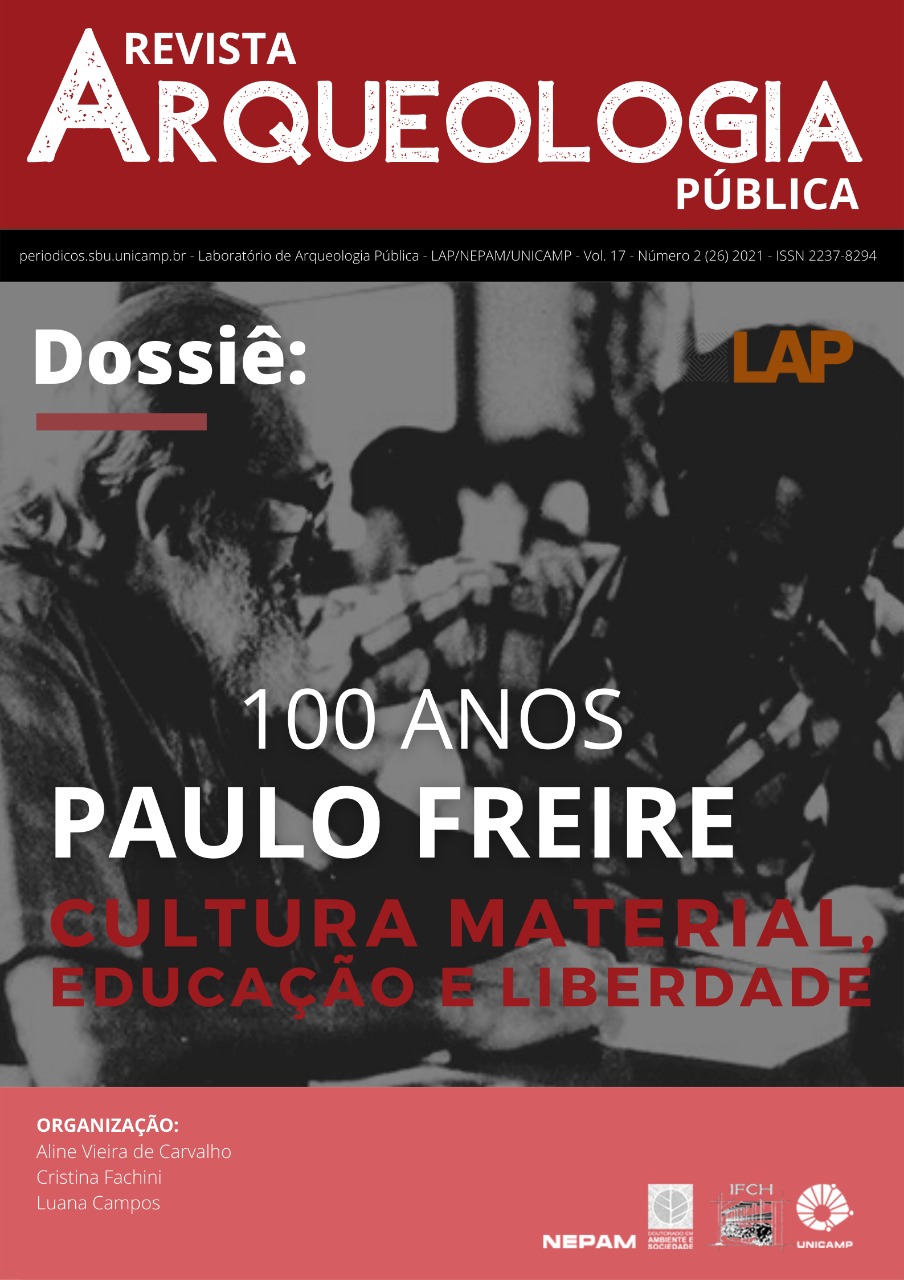Abstract
In this article we present the result of a study that aimed to understand the educational process proposed by the Learning with Indigenous Peoples Project, PACPI and the contributions of Archeology through scientific evidence for learning and recognition of the cultural heritage of indigenous peoples, the valorization of their identities and perceptions of environment and nature. The project was carried out with children from the First Year of Elementary School I at Colegio UNESC, located in the city of Criciúma, SC, in 2018. The approach was qualitative, with participant observation and document analysis as a technique and methodological choice. The data showed that the activities developed through visitation, workshops and records during the project led to engagement, reflection and empathy among students towards indigenous peoples and their cultural heritage. It was concluded through this study that a pedagogical process of qualified heritage education is essential, which provides significant experiences and actions to students, capable of developing a look of compassion, respect and admiration for indigenous peoples, their history, their customs and their culture.
References
BAUER, M. W.; GASKELL, G. Pesquisa qualitativa com texto: imagem e som: um manual prático. (Edit.). GUARESCHI, P. A. (Trad.). Petrópolis: Vozes, 2002.
BOURDIEU, P. O poder simbólico. Lisboa: Difel, 1989.
BOURDIEU, P. A distinção: crítica social do julgamento. São Paulo: Edusp, 2007.
CORREIA, M. C. A Observação Participante enquanto técnica de investigação. Pensar Enfermagem, v. 13, n. 2, p. 30-36, 1999.
FAGAN, B. Uma breve história da arqueologia. MARCOANTONIO, J. (Trad). 1. ed. Porto Alegre: L&PM, 2019.
FREIRE, P. Pedagogia da autonomia. 43. ed. Rio de Janeiro: Paz e Terra, 2011.
GOLDENBERG, M. A arte de pesquisar: como fazer pesquisa qualitativa em Ciências Sociais. 8. ed. Rio de Janeiro: Record, 2004.
HORTA, M. D. L. P.; GRUNBERG, E.; MONTEIRO, A. Q. Guia Básico de Educação Patrimonial. Brasília: Instituto do Patrimônio Histórico e Artístico Nacional / Museu Imperial, 1999.
PELEGRINI, S. C. A. Patrimônio cultural: consciência e preservação. São Paulo: Brasiliense, 2009.
PRATES, M. P. Da instabilidade e dos afetos Mbyá: pacificando relações, amansando outros. Porto Alegre: Editora da UFCSPA, 2019.
QUEIROZ, D. T. et al. Observação participante na pesquisa qualitativa: conceitos e aplicações na área da saúde. Biblioteca Virtual em Saúde. 2007. Disponível em: https://pesquisa.bvsalud.org/portal/resource/pt/bde-14792. Acesso em: 19 jul. 2021.
REIS, M. L. M. dos. Antropologia: Caderno pedagógico. Florianópolis: UDESC/CEAD, 2011.
SANTOS, M. Por uma outra globalização: do pensamento único à consciência universal. 15. ed. Rio de Janeiro: Record, 2008.
SOARES, M. Alfabetização e letramento. São Paulo: Editora Contexto, 2017.
TELLES, N. A imagem do índio no livro didático: equivocada, enganadora. In: LOPES DA SILVA, A. (Org.). A questão indígena na sala de aula - Subsídios para professores de 1° e 2º graus. São Paulo: Brasiliense, 1987. p. 73-89.
YIN, R. K. Pesquisa qualitativa do início ao fim. Porto Alegre: Penso, 2016.

This work is licensed under a Creative Commons Attribution-NonCommercial 4.0 International License.
Copyright (c) 2021 Revista Arqueologia Pública


